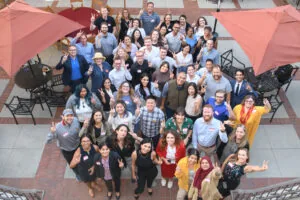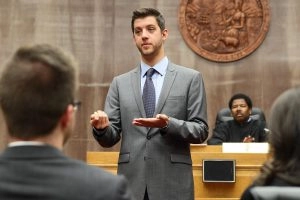Description
On January 6, 2021, the U.S. saw a mass of rioters storming through Capitol Hill, an insurrection that shook the nation’s political leaders, it citizens and their belief in democracy. The attack on the Capitol was a wake-up call for many Americans in a period of misinformation and vitriol, leading them to question the foundational promises of democracy and a peaceful transfer of power.
In this seminar, political experts and USC professors discuss the most beneficial and worrisome election reform under discussion, how public sentiments and the mood of the electorate could impact voter behaviors, registration numbers and voter turnout in 2022.
The seminar features Sen. Alex Padilla (D-Calif.); Richard L. Hasen, chancellor’s professor of law and political science at University of California, Irvine and co-director of Fair Elections and Free Speech Center; Erroll Southers, director of the Safe Communities and associate senior vice president of USC Safety and Risk Assurance; and Stephen Spaulding, senior counsel for public policy and government affairs and senior advisor at Common Cause. The panel is moderated by John Myers, Sacramento bureau chief of the Los Angeles Times and Mindy Romero, professor at USC Sol Price School of Public Policy and founder and director of the USC Center for Inclusive Democracy.
Who Will Benefit
– Policy makers wanting to know which reforms can be beneficial for the American people and democracy
– Young voters seeking to know the laws and their rights ahead of the 2022 elections
– Political strategists digging deeper into public sentiments on democracy and leaders after the riots
About Our Featured Faculty
Erroll Southers is a professor of the practice in national and homeland security, director of the Safe Communities Institute(SCI), director of Homegrown Violent Extremism Studies in the USC Sol Price School of Public Policy, and associate senior vice president of USC Safety and Risk Assurance. He is a former FBI Special Agent, who has served in counterterrorism and public safety positions at every level of government. Southers was President Barack Obama’s first nominee for Transportation Security Administration Assistant Secretary of the Department of Homeland Security (DHS) and Governor Arnold Schwarzenegger’s appointee as deputy director for Critical Infrastructure of the California Office of Homeland Security, where he led the identification, prioritization and protection of the state’s potential terror targets, the nation’s largest such dataset. He served as assistant chief of Homeland Security and Intelligence at the Los Angeles World Airports Police Department, police officer and gang investigator with the Santa Monica Police Department and enjoyed the distinction of being a member of FBI SWAT.
Mindy Romero is the founder and director of the Center for Inclusive Democracy (CID), which is part of USC Sol Price School of Public Policy and is based in Sacramento, California. Romero is a political sociologist and holds a PhD in sociology from the University of California, Davis. Her research focuses on political behavior and race/ethnicity, and seeks to explain patterns of voting and political underrepresentation, particularly among youth and communities of color in California and the U.S. Her research has been cited in major news outlets, including The New York Times, Washington Post, Los Angeles Times, Sacramento Bee, Politico and the Huffington Post. She has also been a frequent guest on National Public Radio, Capital Public Radio and several other NPR-affiliated stations in California. She is a regular op-ed contributor to the Sacramento Bee and CalMatters. She is currently an adjunct fellow of the Public Policy Institute of California (PPIC) and former member of their Statewide Survey Advisory Committee. Romero is a member of the California Secretary of State’s Taskforce on the Voter’s Choice Act. She is the former Chair of Mutual Housing California and former vice-chair of the Social Services Commission for the City of Davis.



